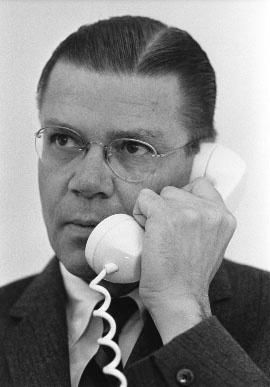
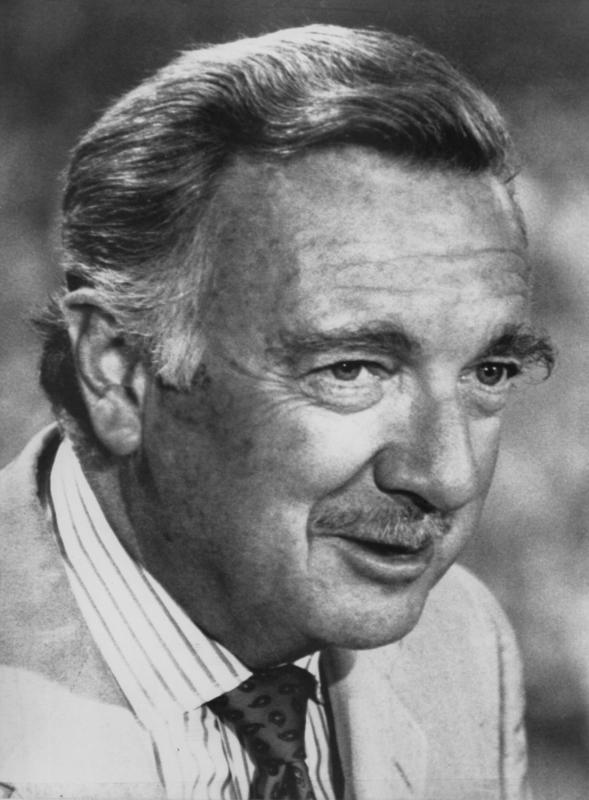
“What do I regret? Well, I regret that in our attempt to establish some standards, we didn’t make them stick. We couldn’t find a way to pass them on to another generation.” — Walter Cronkite, 1916-2009.
Haunting the Web Since 1999


“What do I regret? Well, I regret that in our attempt to establish some standards, we didn’t make them stick. We couldn’t find a way to pass them on to another generation.” — Walter Cronkite, 1916-2009.

My job, in case y’all were wondering: I’m going back into full-time political speechwriting. More specifically, I will be working on the Hill, House side, as a “foot-soldier in the Obama revolution,” to borrow a frequent McCainism. And I hope and expect I’ll be getting a first-hand look at how the legislative sausage is made from the ground floor.
If you’re curious to know who exactly I’m working for, feel free to drop me an e-mail sometime. Why so coy about it? Don’t worry — it’s a Democrat! Still, after close to ten years of posting here at GitM, this feels like a good time to establish some modicum of healthy distance between my life and blog. If anybody’s still reading from my last DC tenure way back when, I acknowledged openly back then that I worked at the FCC, and it’s not like this became the go-to place for inside scuttlebutt on the AOL-TW merger or anything. (Nor, during my Carville stint, did I post about any work goings-on in this space either. I may not have been blogging per se in ’97 and ’98, but I was nevertheless writing here pretty often.)
But, in those days, the Internet was more of a Wild West frontier town, blogging was a relatively new fad — back then, it wasn’t “What do the bloggers think?!” but “Why are you bothering to post that stuff online?!” — and I think it was easier to get away with more. Now, I’m under no illusions that GitM has or ever will enjoy a large readership — In fact, in terms of visitors this site peaked probably five or six years ago. And, from the beginning, I’ve always been conscious that this is a public forum, and have tried to be relatively temperate in my posts accordingly. I think the archives here reflect pretty well on me, all in all, and I’m not really concerned about hiding anything. Even if somebody did make the effort for some ridiculous, unlikely reason, the worst headline a right-wing blogger type might come up with after perusing the past decade of posts is “Democratic Aide is Overgrown Boy, Won’t Shut Up about Lord of the Rings.“
But, obviously, I have been a partisan here over the years. And so, by establishing a little more distance between my blogging and working life, I hope it’ll emphasize the fact that both the ten years of posts already here, and the posts to come, reflect on me and me alone. As far as GitM goes in the future, I won’t be posting on my day-to-day business as always, and, as always, I’ll be erring far on the side of discretion in my choice of topics. Still, unless Congress suddenly takes a decisive stance on movie trailers, fanboy-to-film properties, random science and culture articles, and the occasional items of historical or progressive interest, I’m sure the usual content here won’t shift all that much.
Phew! Now that all the caveats are out of the way, let me say that I’m very happy to be both rejoining the ranks of the employed and returning to political speechwriting. (Yes, some aspects of DC life do rankle, but I have a lot of friends there, and it’s definitely a fun, interesting town.) To be honest, this is a career move I’ve been considering since I first set off for grad school in 2001, so my returning to the political fold on the other end of the PhD process (give or take a few months) feels like a natural and very satisfying progression to me. (The Ivory Tower isn’t losing much anyway, particularly given that the existence of academic jobs in this recession economy, as many poor souls out there can tell you, is proving to be almost entirely theoretical. Besides, over the long term, I don’t really see the academic and speechwriting paths as mutually exclusive anyway. And never say never — with any luck, I have a ways to go yet before the final bell tolls.)
At any rate, I’m off for a hopefully MacArthuresque return to DC. I expect updates here will be more sparse than usual over the next few weeks as I make the move and settle in. But, I’ll be back, in due course. Until then, a very happy July 4th to you and yours.
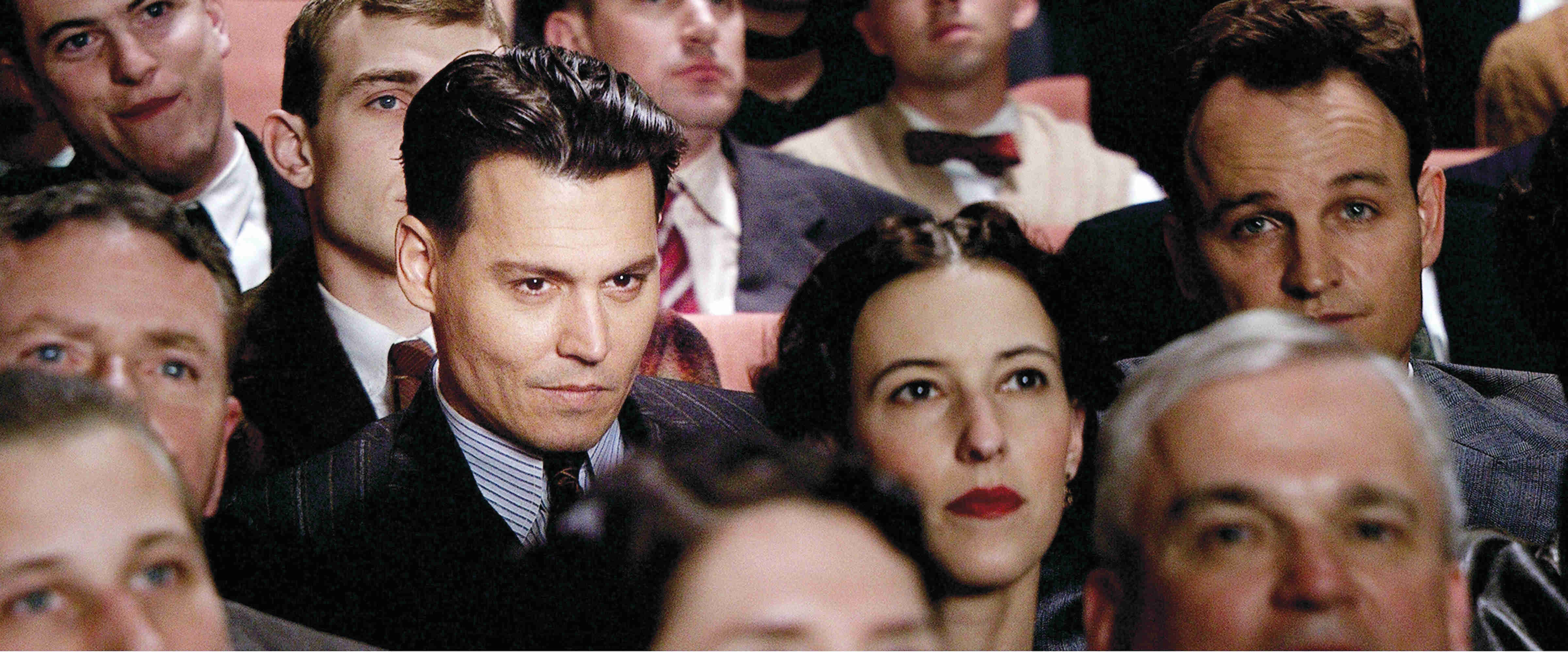
But what I found most interesting in Public Enemies were the parallels to probably my favorite Mann film, Last of the Mohicans. Both are tales of American history, of course, and both involve unbounded loners — Mann-ly men beholden to no one but themselves — who find their priorities and “no-strings” life philosophy challenged once they meet that certain special woman, be it Cora Munro (Madeleine Stowe) or Billie Frechette (Marion Cotillard). (Now that I think about it, that same dynamic holds for the DeNiro (Amy Brenneman) and Colin Farrell (Gong Li) characters, and to a lesser extent even those of Val Kilmer (Ashley Judd) and Jamie Foxx (Naomi Harris), in Heat and Miami Vice respectively.)
But, even beyond that, Public Enemies is, like Last of the Mohicans, mainly about the demise of a certain type of freewheeling individual, a man who cannot continue to exist under the tenets of the New World Order being born at that very moment. In this case, it’s not the armies of Europe, and the mores and treaties of “civilization” that they carry with them, that are ratcheting up the pressure. Rather, it’s the swiftly emerging enforcement arm of Big Guvmint, and the corresponding reaction by Organized Crime, as personified here by Capone underboss Frank Nitti, that are hemming our (anti-)hero in. (While I don’t think he ended up being that successful at it, Martin Scorsese seemed to be going for much the same idea at the close of Gangs of New York, when the arrival of the Union army from Gettysburg basically makes the gang war brewing all movie irrelevant. There’s a new boss in town, and it’s called the U.S.A.)
As such, when you think about it, Mann and Depp’s John Dillinger is not unlike Hawkeye (Daniel Day-Lewis) from Mohicans. In fact, he’s what you might call the Last of the Honest Bank Robbers. It used to be a fella in trouble with the law could just jump the state line and find respite over in, say, Ken-tuck-ee. But that’s not how it’s plays anymore, not after J. Edgar Hoover (Billy Crudup) gets through fashioning a brutally effective and fully federal law enforcement system to hunt down Dillinger and his cohort of “Public Enemies.” (Yep, in his own way Crudup is as much of a paradigm-changer here as he was in Watchmen. Instead of heralding the Atom, he’s now the harbinger of Federal Power. Either way, the new age he represents makes the old ways of doing business irrelevant.)
Just to help get this point across, Mann has Bale’s Melvin Purvis shoot gangster Pretty Boy Floyd (Channing Tatum, blink-and-you-miss-him) dead early in the first reel. Best remembered from the Woody Guthrie social protest ballad (“Some will rob you with a six-gun, and some with a fountain pen“), “Pretty Boy” Floyd is another member of the same dying breed, so of course he’s brought low by Hoover’s G-men right away in this telling. The new Federal state has no use for charismatic outlaws, even if they are rumored occasionally to dole out “a whole car load of groceries” to “the families on relief.” (Why is this telling of Mann’s purpose? Well, mainly because it’s blatantly wrong. Floyd, like fellow outlaws “Baby Face” Nelson (Stephen Graham) and Homer Van Meter (Stephen Dorff) actually all outlived Dillinger, which, frankly, are some rather large liberties to play with a supposedly true story.)
Anyway, if the last few paragraphs have seemed more unmoored and stream-of-consciousness than a lot of the reviews around here, well, so is the movie. Public Enemies is a strange bird, an alternately compelling and occasionally lumbering biopic that moves to a beat of its own. In the end, I’d definitely recommend the film, if nothing else than for its hi-def visual flair, occasional moments of real grace, and documentary recreation of the thirties. But particularly in the film’s first hour, it’s sometimes hard to get a grasp on what exactly is going on. (Our couple runs into some trouble at the track, for example, which seemingly comes out of the blue if you weren’t already familiar with the contours of Dillinger’s story.) And eminently recognizable faces — Giovanni Ribisi, Lili Taylor, David Wenham, Emilie de Ravin, Leelee Sobieski, Herc and Judge Phelan of The Wire — often flit in and out without introduction, such that it sometimes becomes hard to keep track of who’s important and who’s not.
Still, I’d almost always be challenged by a movie by being given too little information rather than have it overexplain everything. I expect some people will find Public Enemies maddening (and others maddeningly dull), but it’s undoubtedly pure, undiluted Michael Mann. And — like Billie — I’m glad I took this ride.
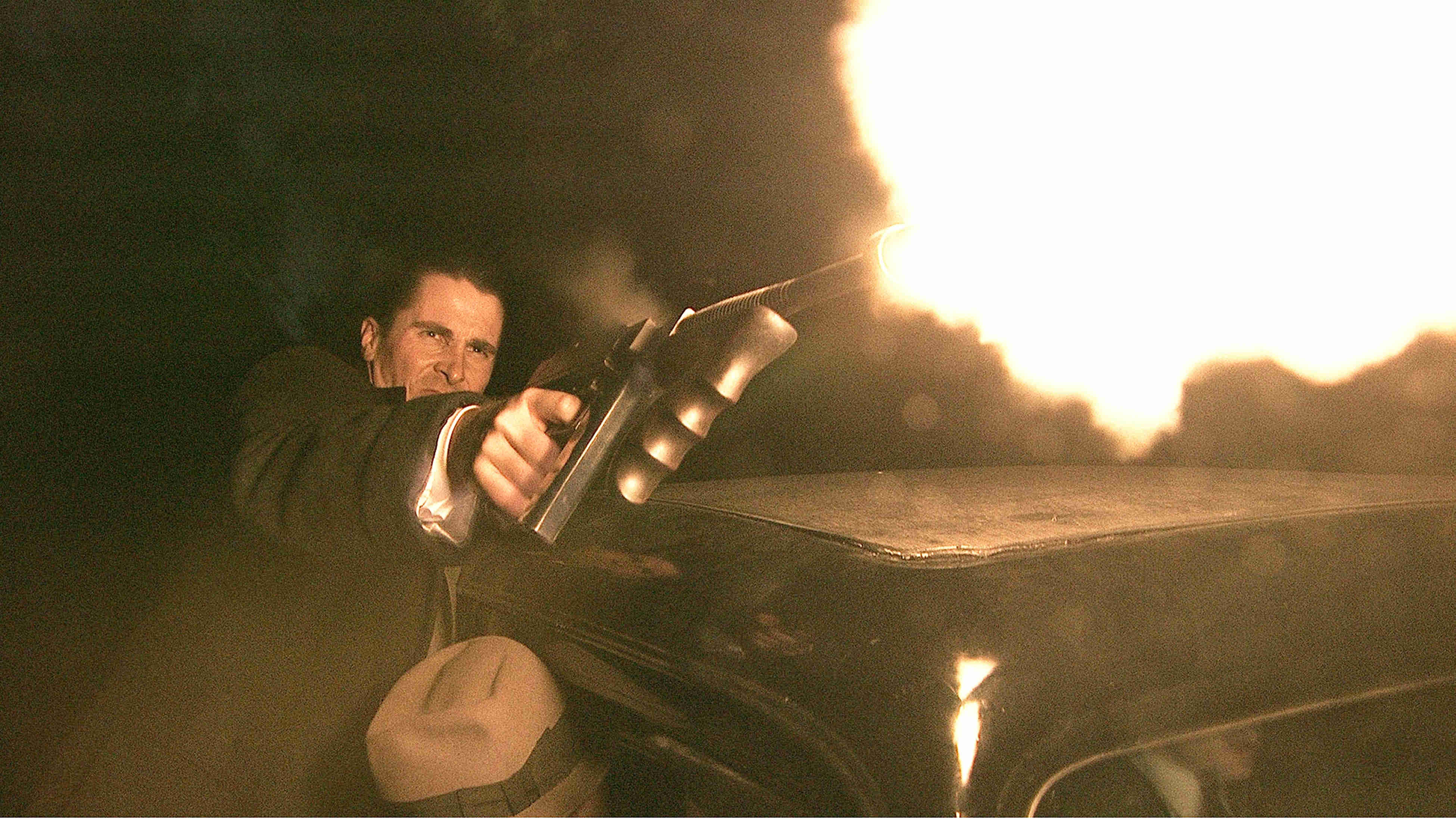
“The colony may be the largest of its type ever known for any insect species, and could rival humans in the scale of its world domination.” By way of FmH, scientists discover that Argentine ants seems to have developed a multi-continental mega-colony. “[W]henever ants from the main European and Californian super-colonies and those from the largest colony in Japan came into contact, they acted as if they were old friends…In short, they acted as if they all belonged to the same colony, despite living on different continents separated by vast oceans.” Well, one thing is for certain, there is no stopping them; the ants will soon be here. And I, for one, welcome our new insect overlords.
“Let me go back to a comfortable analogy for me – sports… basketball. I use it because you’re naive if you don’t see the national full-court press picking away right now: A good point guard drives through a full court press, protecting the ball, keeping her eye on the basket…and she knows exactly when to pass the ball so that the team can WIN. And I’m doing that – keeping our eye on the ball that represents sound priorities – smaller government, energy independence, national security, freedom! And I know when it’s time to pass the ball – for victory.“
Sarah says that she wants to know, why she’s given half her life to people she hates now… Or, in other words, members of the press, you won’t have a certain maverick to kick around anymore…or will you? With a rambling farewell speech that probably won’t be remembered as a model of the form, former veep nominee Sarah Palin resigns the governorship of Alaska. Whether this is due to 2012 calculation or impending scandal is yet to be determined, although the hurriedness of the preparations would seem to suggest the latter.
“Brazil‘ is the one that will probably be stamped on my grave because that on seemed to have made a big effect on a lot of people. And that’s all I’m trying to do is affect people.” CNN talks briefly with Terry Gilliam on Heath Ledger’s passing, The Imaginarium of Dr. Parnassus, and sundry other topics. “Talent is less important in filmmaking than patience. If you really want your films to say something that you hope is unique, then patience and stamina, thick skin and a kind of stupidity. A mule-like stupidity is what you really need.“
“‘I was so incredibly lucky,’ Malden once told The Times. ‘I knew I wasn’t a leading man. Take a look at this face.‘” Karl Malden, nee Mladen Sekulovich, 1912-2009. “I’m a workaholic. I love every movie I’ve been in, even the bad ones, every TV series, every play, because I love to work. It’s what keeps me going.”
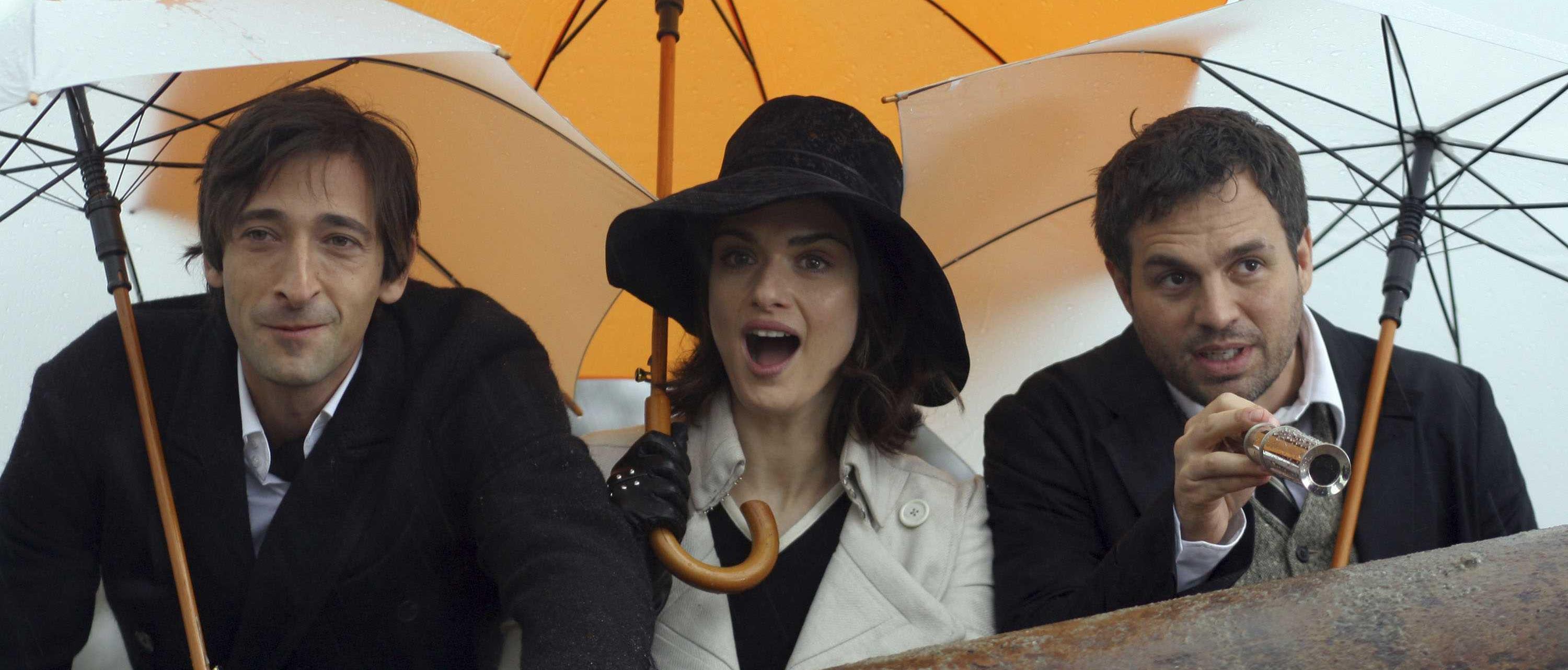
But, sadly, the well-meaning but ultimately rather flimsy Brothers Bloom suffers from serious flaws. It’s a relentlessly good-natured caper flick, so harping on its problems feels a bit like acting the Grinch. But, nonetheless, The Brothers Bloom is too coy and precious by half. The main problem is that, for whatever reason, it’s been Wes Andersonized within an inch of its life. The static shots crufted over with hyperstylized bric-a-brac, the low-fi, DIY scene cards, the many peculiar eccentricities of the upper crust, the hipster’s vinyl collection of forgotten oldies comprising the soundtrack, the somewhat dubious minority characters, the jaunty, vaguely Tintin-ish plot — It got to the point where I sometimes forgot if Adrien Brody was supposed to be hectored by older brother Mark Ruffalo or by older brother Owen Wilson.
At any rate, The Brothers Bloom begins in Wes Anderson-style and never lets it go. When we first encounter the titular siblings, they’re two young orphans who already dress like the Artful Dodger, and who — moving from foster home to foster home — are already developing a taste for the long con. Even in these early years, the fraternal dynamic is set. Stephen, the elder (eventually, Ruffalo), is the idea-man. Using large flowcharts to get his beats across, he conceives extended, needlessly elaborate cons mainly as long-winded adventure stories to amuse his little brother. Meanwhile, Bloom, the younger (soon to be Brody), is the unwitting and eventually deeply beleaguered star of Stephen’s tales. Just like Tom Reagan in Miller’s Crossing, he tends to achieve the desired outcome of his brother’s gambits, but lose the girl in the process.
After they grow up, the brothers — along with their partner-in-crime, the basically mute explosives expert Bang Bang (Rinko Kikuchi — more on her in a bit) — wreak havoc on various unsuspecting marks and gain notoriety all across the globe. But when Bloom has finally had enough, Stephen decides to concoct a bravura finish: A final job, one that will involve grifting a beautiful, bizarre, and deeply lonely New Jersey heiress, Penelope Stamp (Weisz). Will Bloom finally get the girl this time? Ah, no peeking — that would ruin the trick.
The Brothers Bloom is as obsessed with legerdemain and sleight-of-hand as, say, The Prestige, and as the movie moves to its conclusion its central conceit — cons/tricks = seduction = storytelling = filmmaking — grinds louder and louder. (Speaking of which, as part of its pledge Brothers telegraphs relatively early that the film will end in Mexico. This is a mistake. Partly because, as the movie wears out its welcome, I found myself wishing more and more that they’d get South of the Border already. And, when the movie *doesn’t* end in Mexico, it makes the convoluted, almost inchoate final act — in Russia, in case you were wondering — seem that much more meandering and purposeless.)
The problem is it’s hard to shake the feeling that we’ve seen this trick before. Like I said, this is a Wes Anderson movie through and through, and if, like me, you’re kinda over that whole aesthetic at this point, you’ll begin to lose interest even while Johnson is still dealing the cards. (Admittedly, the moments I liked best in Bloom probably count as Wes Andersonisms, from — for me, the biggest laugh in the movie — Rachel Weisz’s three-second-turn as a club DJ to Weisz and Brody dancing the bolero aboard a pleasure cruise on a moonlit night.) And don’t get me started on Robbie Coltrane, who even more than everyone else seems like an unnecessary emissary from the Andersonverse here.
Also in the debit department, there is the matter of Bang Bang. I won’t say she’s a racial stereotype that’s offensive, per se (particularly given the noise coming out of Transformers 2 this past week — it seems that bar is still set really low) — but everything from her unfortunate name (at best a Nancy Sinatra reference, but still too chop-socky by half) to her stint doing Tokyo karaoke suggests there’s a lot of really embarrassing Exotic Othering on Johnson’s part going on here. Honestly, when your Asian female character has more screen time and less dialogue than Chewbacca, something has gone horribly wrong. Next time, how about write the poor girl some lines?
At any rate, I can see some folks, particularly the Anderson-inclined, being able to overlook the many flaws of The Brothers Bloom and just see it as an easy-on-the-eyes, unabashedly romantic caper story. I am not one of those folks — At best, it’s a rental.
[Note: I realize The Brothers Bloom came out ages ago for many GitM readers. But, what can I say? It got here only recently — At the moment, I’m a victim of the limited release schedule. In a perfect world, I’d be talking about Moon, Whatever Works and/or The Hurt Locker right now, instead of studiously avoiding the 45 showings a day of Transformers 2. As it is, hopefully I can get to Michael Mann’s Public Enemies sometime over the coming weekend.]
“That’s happened with increasing frequency at the FEC lately. Election-law experts, supporters of campaign-finance regulations, and even some members of the commission itself are expressing growing concern about a string of cases in which the three Republicans on the commission — led by Tom DeLay’s former ethics lawyer — have voted as a block against enforcement, preventing the commission from carrying out its basic regulatory function.” Pete Martin and Zachary Roth of TPM Muckraker delve into how Republicans antithetical to campaign finance reform have effectively sabotaged the FEC. “The FEC, he said, has been made ‘ineffective’ — and not by accident. ‘This is what McConnell had in mind.’“
“Of course, the one person who could do the most to get the commission back on track is President Obama…Most experts believe that the White House supports stronger campaign-finance laws as a goal, but, with a host of other issues on its plate, is reluctant to pick a fight with the GOP Senate leader. ‘They’re picking their priorities, and they don’t want to take on Mitch McConnell right now,’ said Hasen. ‘I consider that unfortunate.‘” Anyone else sensing a pattern?
In the July 4th weekend trailer bin: